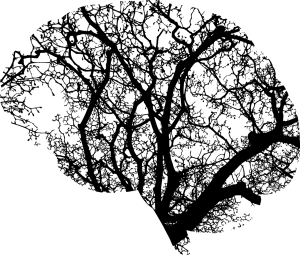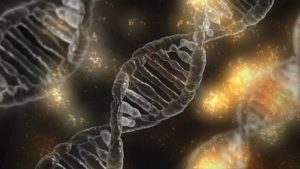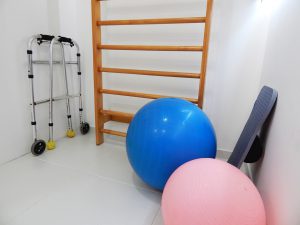#LetsTalkAboutHD is a social media campaign whose creation was to bring hope and awareness to Huntington’s Disease, HD. The disease affects one out of every 10,000 people a year, which is about 30,000 people in the United States. In order to find effective treatments to slow the disease, the campaign was created in May 2016, which is fitting because May is Huntington’s Disease Awareness month. It hopes to raise funding for more tests by getting families to share their experiences with HD, so the world hears it and takes action. George Huntington was 22 years old when he first discovered the debilitating brain disease. The disease can affect juveniles, but symptoms usually begin when a person is in their 30s and 40s. People of European descent have a higher chance of getting the mutated gene that progresses the disease over time.

What Exactly Is Huntington’s Disease?
Huntington’s disease is a brain disorder caused by toxin proteins collecting in the brain. The huntingtin (HTT) gene provides instructions for the body to create a protein called “huntingtin”. Huntingtin is an important protein found in tissue and the brain. Mutations in the HTT gene, tells the brain to create extra DNA that leads to the production of longer-than-normal protein. Essentially, the DNA is in a repeating sequence. Damage occurs to the brain’s cells and neurons over time, leading to neurological symptoms, such as impaired posture, abnormal or slow eye movements, and difficulty swallowing and talking. As it progresses, it will eventually cause uncontrolled movements, emotional problems, and cognitive issues. The average adult brain is about 3 pounds, and someone with HD at its final stages will have a brain that weighs about a pound less, that’s 30% less! The disease will have eaten away so much of the brain’s nerve cells, causing bigger openings in the brain.
A less common form of Huntington’s disease is the juvenile form of it. It is diagnosed in about 5-10 percent of all HD cases. It begins in childhood, and can mask itself as normal child-like and teenage behavioral issues such as aggression, depression, and impulsiveness. Because of this, many children and young people get misdiagnosed, until it is too late. Juvenile Huntington’s tends to progress more quickly, which is why people diagnosed with it are in more danger. After symptoms appear, those affected usually only live 10-15 years.
What Are The Symptoms?
The symptoms of Huntington’s are similar to those of ALS, Parkinson’s, and Alzheimer’s. It affects your movement, cognitive functions, and mental functions. Symptoms include:
- Trouble balancing -many people with Huntington’s die due to imbalance.
- Trouble swallowing- in the later stages, the risk of choking is high
- Involuntary movements such as twitching and jerking around
- Difficulty speaking
- Memory issues
- Difficulty focusing
- Poor impulse control
- Depression- one of the early signs of Huntington’s, along with irritability.
- Obsessive-compulsive disorder can occur
- Bi-polar disorder can occur
For people younger than 20 with Juvenile Huntington’s, symptoms are often behavioral, and emotional. This includes moodiness, aggression, stubbornness, anger, frustration, and depression. Many kids and teens experience this range of emotion, which makes it hard to diagnose. Additional signs include seizures, slow movements, balance

issues, loss of motor skills, slurred speech, a decline in school performance, and impaired reasoning abilities. Between 30-50% of people with Juvenile Huntington’s disease will have seizures.
Is it Genetic?
Huntington’s disease is an autosomal dominant disorder, meaning that one copy of the altered gene is inherited from a parent. If the mother is the one affected with the disease, then the child will most likely develop it at the same age their mother developed it. If the father is the one affected by it, then developing the disease will potentially happen at an earlier age than when the father developed it. Each child has a 50% chance of inheriting the faulty gene. The disease never skips a generation.
Is There A Cure?
Unfortunately, there is no cure for Huntington’s disease. There is also no treatment that can reverse its progression or slow it down. However, it can be managed. A healthy diet and exercise will contribute to improving the person’s physical and mental health. Medications can help with involuntary movements. Speech therapy can help the person communicate more effectively, physical therapy can help improve muscle strength and flexibility, leading to better balance. Lastly, occupational therapy can help a person create strategies for coping with memory and concentration issues.

Diagnosis
Because HD is a genetic disease, family and medical history are important for your doctor to be aware of. This way, the doctor can make judgments on genetic testing to confirm the disease. The doctor can also refer a patient to a neurologist, where they can order a CT or MRI scan to identify changes in the brain structures.
Huntington’s disease is a rare genetic illness that takes a toll on a person’s life. It is important to be aware of your family and medical history, and seek testing to confirm suspicions. This is especially important for children and teens who might have the disease and it gets brushed off as “normal growing behaviors”. People with HD can still live to their full potential. Through a healthy diet, speech therapy, occupational therapy, and physical therapy, a person with HD can improve their quality of life.
